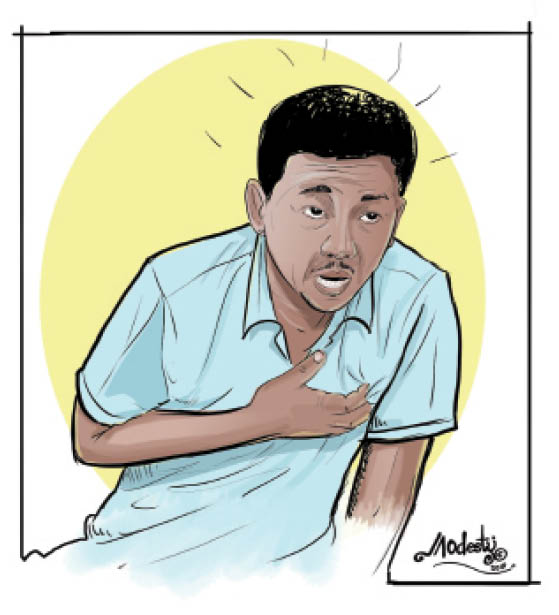Enlighten us about Panic Attack Disorder
I wish to sincerely commend the effort of this weekly health column and the management of Daily Trust for ensuring it comes out every Tuesday. Kindly enlighten us about Panic Attack Disorder. You will agree with me that in this COVID-19 era with fake news everywhere, some people will suffer from Panic Attack Disorder. […]

Enlighten us about Panic Attack Disorder
I wish to sincerely commend the effort of this weekly health column and the management of Daily Trust for ensuring it comes out every Tuesday. Kindly enlighten us about Panic Attack Disorder. You will agree with me that in this COVID-19 era with fake news everywhere, some people will suffer from Panic Attack Disorder.
Mrs XV.
Thanks, Mrs XV for your question and kind word on the work we are doing. Panic disorder occurs when one experiences recurring unexpected panic attacks. It is defined as abrupt surges of intense fear or discomfort that peak within minutes. People with the disorder live in fear of having a panic attack. One may be having a panic attack when he/she feels sudden, overwhelming terror that has no obvious cause. One may experience physical symptoms, such as a racing heart, breathing difficulties and sweating.
What are the symptoms of panic disorder?
Symptoms of panic disorder often begin to appear in teens and young adults under the age of 25. If you have had four or more panic attacks, or you live in fear of having another panic attack after experiencing one, you may have a panic disorder.
Panic attacks produce intense fear that begins suddenly, often with no warning. An attack typically lasts for 10 to 20 minutes, but in extreme cases, symptoms may last for more than an hour. The experience is different for everyone, and symptoms often vary.
Common symptoms associated with a panic attack include:
- Racing heartbeat or palpitations
- Shortness of breath
- Feeling like you are choking
- Dizziness (vertigo)
- Lightheadedness
- Nausea and sweating or chills
- Shaking or trembling
- Changes in mental state, including a feeling of unreality or being detached from oneself
- Numbness or tingling in your hands or feet
- Chest pain or tightness
The symptoms of a panic attack often occur for no clear reason. Typically, the symptoms are not proportionate to the level of danger that exists in the environment. Because these attacks can’t be predicted, they can significantly affect your functioning. Fear of a panic attack or recalling a panic attack can result in another attack.EGALLERY4
What causes panic disorder?
The causes of panic disorder are not clearly understood. Research has shown that panic disorder may be genetically linked. Panic disorder is also associated with significant transitions that occur in life. Leaving for college, getting married, or having your first child are all major life transitions that may create stress and lead to the development of panic disorder.
Who is at risk for developing panic disorder?
Although the causes of panic disorder are not clearly understood, information about the disease does indicate that certain groups are more likely to develop the disorder. In particular, women are twice as likely as men to develop the condition.
How is panic disorder treated?
- Treatment for panic disorder focuses on reducing or eliminating symptoms. This is achieved through therapy with a qualified professional and in some cases, medication. Therapy typically involves cognitive-behavioral therapy (CBT). This therapy teaches one how to understand his/her attacks and manage fear.
- Medications used to treat panic disorder can include selective serotonin reuptake inhibitors (SSRIs), a class of antidepressant.
In addition to these treatments, there are a number of steps that you can take at home to reduce your symptoms which include:
- Maintaining a regular schedule
- Exercising on a regular basis
- Getting enough sleep
- Avoiding the use of stimulants such as caffeine
How can panic disorder be prevented?
It may not be possible to prevent panic disorder. However, you can work to reduce your symptoms by avoiding alcohol and stimulants such as caffeine as well as illicit drugs. It is also helpful to notice if you are experiencing symptoms of anxiety following a distressing life event.
